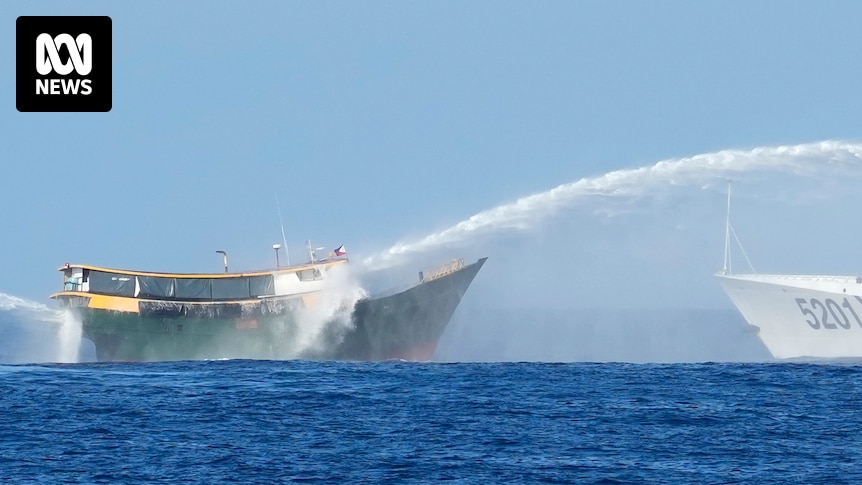China-Philippines South China Sea Dispute Escalates: Tensions Rise Over Fishing Rights and Resource Claims
The South China Sea dispute between China and the Philippines has taken a sharp turn, escalating tensions over fishing rights and resource claims in the contested waters. Recent incidents have reignited concerns about regional stability and the potential for further conflict. This escalating situation demands a closer look at the key issues fueling the dispute and the potential consequences for the region.
Recent Triggering Events: A Timeline of Escalation
The current escalation isn't a sudden event, but rather a culmination of simmering tensions. Key events contributing to the heightened atmosphere include:
-
Increased Chinese Coast Guard Activity: Reports of increasingly assertive actions by the Chinese Coast Guard, including the harassment of Filipino fishing vessels and interference with resource exploration activities within the Philippines' Exclusive Economic Zone (EEZ), have fueled outrage in Manila. These actions are seen as a direct violation of international law and the 2016 arbitral ruling that invalidated China's expansive nine-dash line claim.
-
Scarborough Shoal Standoff: The Scarborough Shoal, a strategically important area within the disputed waters, remains a major flashpoint. Recurring instances of Chinese vessels asserting control over the area continue to restrict Filipino fishermen's access to traditional fishing grounds.
-
Resource Exploration Disputes: China's continued exploration for oil and gas within areas claimed by the Philippines further exacerbates the conflict, raising concerns about resource exploitation and sovereignty.
-
Diplomatic Efforts Stalled: Despite ongoing diplomatic efforts, significant progress towards a peaceful resolution remains elusive. The lack of concrete steps towards de-escalation has contributed to a growing sense of uncertainty and frustration.
Understanding the Core Issues: Beyond Fishing Rights
While fishing rights are a prominent aspect of the conflict, the underlying issues are far more complex and encompass:
-
Sovereignty Claims: The dispute boils down to competing claims of sovereignty over various islands, reefs, and maritime features within the South China Sea. China's expansive claims, based on the historical "nine-dash line," directly clash with the claims of several Southeast Asian nations, including the Philippines.
-
Strategic Importance: The South China Sea is a strategically vital area, rich in natural resources and crucial for global shipping lanes. Control over these waters holds significant economic and military implications.
-
International Law: The 2016 arbitral ruling, which largely favored the Philippines, represents a cornerstone of international law in this context. China's continued disregard for this ruling undermines the international legal order and sets a dangerous precedent.
Potential Consequences and the Path Forward
The escalating tensions pose several significant risks:
-
Military Confrontation: The risk of accidental clashes or intentional escalation between Chinese and Filipino forces remains a real possibility.
-
Regional Instability: The dispute has the potential to destabilize the entire region, drawing in other regional powers and potentially escalating into a wider conflict.
-
Economic Disruption: Disruptions to shipping lanes and fishing activities could have significant economic consequences for countries in the region and globally.
Resolving the dispute requires a multifaceted approach:
-
Strengthening Regional Cooperation: Enhanced communication and cooperation among ASEAN member states are crucial for presenting a united front and negotiating with China.
-
Reinforcing International Law: The international community must uphold the 2016 arbitral ruling and pressure China to comply with international law.
-
Promoting Peaceful Dialogue: Continued diplomatic efforts and a commitment to peaceful negotiations are essential to finding a mutually acceptable solution.
The escalating tensions in the South China Sea highlight the urgent need for a peaceful and just resolution. The international community must actively engage to de-escalate the situation and prevent a further deterioration of regional stability. The future of the South China Sea depends on a commitment to international law and a willingness to find common ground through dialogue and cooperation.

